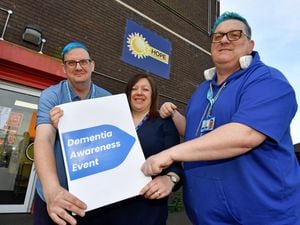Ovarian cancer scheme for Sandwell and Birmingham gets £100,000 grant
A £100,000 grant has been given to doctors working to improve the survival rates of women with ovarian cancer in the region.

The Pan-Birmingham Gynaecological Cancer Centre is working jointly with University of Cambridge to boost the uptake in genetic testing, especially in Black, Asian and Minority Ethnic communities where survival rates are low.
The project, called the Demonstration of Improvement for Molecular Ovarian cancer testing (DEMO), will create information about genetic testing in various languages both in leaflet and video format.
It will also improve the quality of the sample taken to aid diagnosis when there is suspicion of ovarian cancer by establishing a guidance document for all healthcare professionals involved in the process.
Now the project has been handed £100,000 through the Sandwell and West Birmingham NHS Trust.
Clinical lecturer at the Pan-Birmingham Gynaecological Centre, based at City Hospital in Dudley Road, Birmingham, Dr Elaine Leung said: "This is a much-needed project reaching those diverse communities in the area.
"With the support of our patient representatives, the materials we co-create will be in an easy-to-understand format in both written and video form, which will give women a better understanding of the link between cancer and genetic testing."
She added: "It’s important to ensure women know that genetic testing is similar to early detection and can help prolong life - we have already seen evidence of this through other studies. It helps to provide tailored treatments for patients and ultimately can mean surviving an ovarian cancer diagnosis."
The project has been funded by health charity Ovarian Cancer Action and is part of a wider national initiative which includes funding for five other NHS cancer centres.
Lisa Bird, a former cancer patient who is part of the project, said: "When I was in my thirties I was diagnosed with ovarian cancer, which was a large shock. My first line treatment successfully got me into remission but I wanted to know what options would be available to me if I came out of remission.
"I investigated treatment options and found that there were some treatments only available to those that have the BRCA 1 and 2 genes. I also wanted to know if other family members were at an increased genetic risk of also getting ovarian cancer, so that I could warn them of the symptoms and ensure that they received better monitoring by their GPs."





